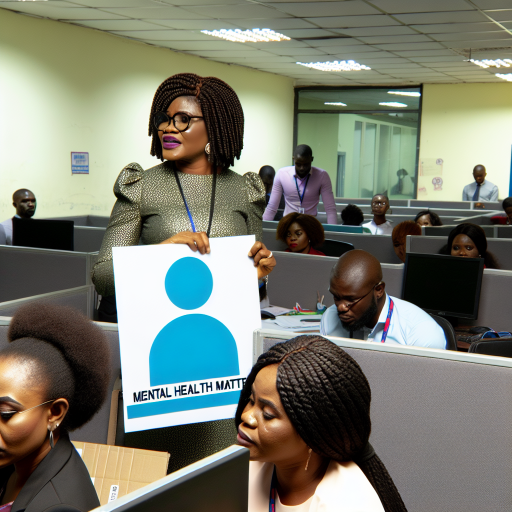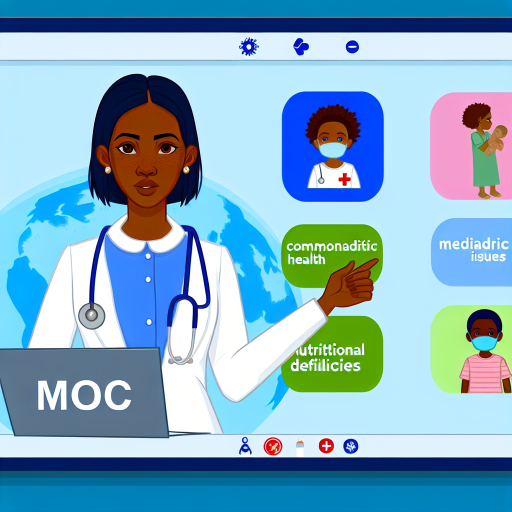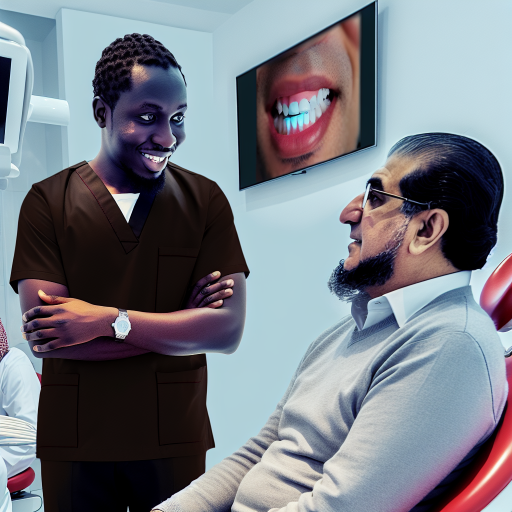Introduction:
In Nigeria, paediatricians are medical doctors specialized in the care of infants, children, and adolescents.
They play a crucial role in the healthcare system by providing specialized medical care for young patients.
This blog post aims to outline the qualifications and training required to become a paediatrician in Nigeria.
Qualifications to Become a Paediatrician in Nigeria:
To start on the path to becoming a paediatrician in Nigeria, individuals must first obtain a medical degree from a recognized university.
This lays the foundation of medical knowledge and expertise necessary for specialisation in paediatrics.
After obtaining a medical degree, aspiring paediatricians in Nigeria must undergo residency training specifically focused on paediatrics.
This training typically lasts for a few years and provides hands-on experience in caring for children and infants.
Once the residency training is completed, paediatricians in Nigeria must seek certification by the Medical and Dental Council of Nigeria.
This certification is essential for practicing as a paediatrician in the country and ensures that the individual meets the necessary standards of competence and professionalism.
The journey to becoming a paediatrician in Nigeria requires dedication, hard work, and a commitment to providing quality healthcare for children.
By obtaining a medical degree, completing residency training in paediatrics, and achieving certification from the Medical and Dental Council of Nigeria, individuals can embark on a fulfilling career in paediatrics.
They will make a positive impact on the health and well-being of children in the country.
Training Requirements for Paediatricians in Nigeria
When it comes to training required for paediatricians in Nigeria, there are several key aspects that aspiring doctors must complete in order to become qualified specialists in this field.
Practical Experience in Hospitals and Clinics
One of the essential components of training for paediatricians in Nigeria is gaining practical experience in hospitals and clinics.
This hands-on experience allows doctors to apply their knowledge in a real-world setting, working directly with children and learning how to diagnose and treat a variety of conditions.
Continuing Medical Education Courses
In addition to practical experience, paediatricians in Nigeria are also required to participate in continuing medical education courses.
These courses help doctors stay up-to-date on the latest advancements in paediatric medicine and ensure that they are providing the best possible care for their young patients.
Specialized Training in Areas like Neonatology or Pediatric Cardiology
Depending on their specific interests and career goals, paediatricians in Nigeria may also choose to undergo specialized training in areas like neonatology or pediatric cardiology.
This additional training allows doctors to develop expertise in a specific area of paediatric medicine and provide specialized care for children with complex medical conditions.
The training required for paediatricians in Nigeria is rigorous and comprehensive.
It ensures that doctors are well-prepared to provide high-quality care for children in both clinical and hospital settings.
See Related Content: Oral and Maxillofacial Surgery Costs in Nigeria
Challenges Faced by Paediatricians in Nigeria:
When it comes to working as a paediatrician in Nigeria, there are several challenges that healthcare professionals in this field face.
These challenges can impact the quality of care provided to children and their families in the country.
Limited resources and equipment in healthcare facilities:
One major challenge faced by paediatricians in Nigeria is the lack of adequate resources and equipment in healthcare facilities.
This can hinder their ability to accurately diagnose and treat patients, leading to subpar care.
High patient to doctor ratio:
Another challenge is the high patient to doctor ratio in many healthcare facilities across Nigeria.
Paediatricians often find themselves overwhelmed with the number of patients they need to see, which can compromise the time and attention each child receives.
Lack of funding for research and development in paediatrics:
Despite the importance of research and development in paediatrics, there is a significant lack of funding in this area in Nigeria.
This means that paediatricians may not have access to the latest advancements and treatments in the field.
Delve into the Subject: Studying Parasitology: Nigerian Institutions Guide
Paediatricians play a crucial role in the Nigerian healthcare system by providing specialized care for children.
Importance of Paediatricians in Nigeria
- They contribute to child health and well-being by addressing the unique needs of young patients.
- Paediatricians play a vital role in preventing and managing childhood diseases and illnesses.
Paediatricians in Nigeria undergo extensive training and education to become qualified to care for children.
Qualifications and Training of Paediatricians in Nigeria
Paediatricians are medical doctors who specialize in treating infants, children, and adolescents.
They must first complete a Bachelor of Medicine, Bachelor of Surgery (MBBS) degree from a recognized medical school.
After completing medical school, aspiring paediatricians must undergo a residency program in paediatrics.
This residency program typically lasts for a minimum of three years and involves working in various clinical settings, including hospitals and outpatient clinics.
During their residency training, paediatricians-in-training learn how to diagnose and treat a wide range of childhood conditions, from common illnesses like colds and fevers to chronic conditions such as asthma and diabetes.
Paediatric residents also receive training in a variety of subspecialties within paediatrics, such as neonatology (care of newborns), child development, and adolescent medicine.
Upon completing their residency program, paediatricians must pass a certification exam administered by the West African College of Physicians (WACP) or the National Postgraduate Medical College of Nigeria (NPMCN) to become board-certified in paediatrics.
Transform Your Career with Expert Guidance
Get personalized mentorship consulting that’s tailored to your unique path. Our expert advice is actionable and exclusive.
Get StartedBoard certification is an important credential that demonstrates a paediatrician’s expertise and dedication to providing high-quality care to children.
Continuous medical education is also essential for paediatricians to stay up-to-date on the latest advances in paediatric healthcare.
Paediatricians attend conferences, seminars, and workshops to enhance their knowledge and skills.
In addition to their medical training, paediatricians must possess qualities such as compassion, patience, and excellent communication skills to effectively interact with young patients and their families.
Overall, paediatricians in Nigeria play a critical role in promoting the health and well-being of children through their specialized training, expertise, and commitment to providing quality care.
Learn More: Holistic Approaches in Medical Rehabilitation Nigeria

Paediatricians’ Role in Public Health in Nigeria
Paediatricians play a crucial role in public health in Nigeria by:
Vaccination programs for children
Paediatricians are at the forefront of administering vaccines to children to prevent deadly diseases.
Health education for parents and caregivers
They educate parents and caregivers on the importance of proper nutrition, hygiene, and overall well-being of children.
Monitoring and controlling outbreaks of childhood diseases
Paediatricians work to detect, prevent, and control outbreaks of diseases such as measles, polio, and malaria.
Qualifications and training required to become a paediatrician in Nigeria:
Medical degree from a recognized university
Individuals must first obtain a Bachelor of Medicine and Bachelor of Surgery (MBBS) degree.
Completion of a residency program in paediatrics
After medical school, aspiring paediatricians undergo a residency program specializing in paediatrics.
Licensing by the Medical and Dental Council of Nigeria
Paediatricians must obtain a license to practice from the appropriate regulatory body in Nigeria.
Continuing medical education and training
Paediatricians must constantly update their knowledge and skills through continuing education programs.
Board certification in paediatrics
Some paediatricians choose to pursue board certification to demonstrate their expertise in the field.
Paediatricians in Nigeria play a vital role in public health by administering vaccinations, educating parents, and monitoring outbreaks of childhood diseases.
To become a paediatrician in Nigeria, individuals must meet specific qualifications and undergo rigorous training to ensure they provide the best care for children.
Explore Further: Medical Imaging Techniques Used in Nigeria
Importance of Paediatricians in Nigeria
Paediatricians in Nigeria undergo rigorous training and hold specialized qualifications to provide healthcare for children.
They play a vital role in the country’s healthcare system by ensuring the well-being and proper development of the young population.
It is crucial to recognize and support paediatricians in Nigeria to improve child health outcomes and overall community wellness.
By highlighting the importance of these medical professionals, we can advocate for better resources and policies to enhance paediatric care nationwide.
Let’s come together to appreciate and empower paediatricians in Nigeria for a healthier future generation.
Additional Resources
Practicing medicine in the U.S. as an international medical graduate
Health instruction in Nigerian schools: what are the missing links …




